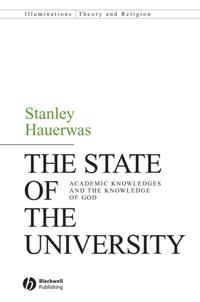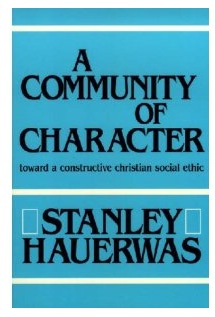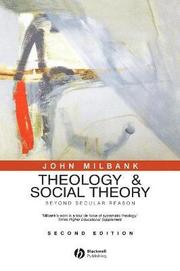 There is an reoccuring theme in the introductions in Hauerwas’s books, namely, ”Does the world need another book by Hauerwas?”. He has tried several different strategies to answer this question (in the affirmative), and usually he ends up arguing that the essays collected in the book in fact all belong together. Most of the time the argumetn, IMO, fails, which of course does not mean that I think that the world does not need another book by Hauerwas. At least I do.
There is an reoccuring theme in the introductions in Hauerwas’s books, namely, ”Does the world need another book by Hauerwas?”. He has tried several different strategies to answer this question (in the affirmative), and usually he ends up arguing that the essays collected in the book in fact all belong together. Most of the time the argumetn, IMO, fails, which of course does not mean that I think that the world does not need another book by Hauerwas. At least I do.
This is a book where he comes very close to pulling of the trick of selling a collection of texts as a ”proper” book. That is, most of the texts in this book actually deal with questions of knowledge, theology and the modern university. They do not, however, build on each other or offer one overall argument.
This is bad if you expected something along those lines, but for the rest of us it is good because we can choose to read those essays that interest us, just like with most of Hauerwas’s books. In this book, I particularly like the first essay which actually could be the first chapter in the kind of book this isn’t, that is, a strong argument about knowledge, theology and the university. I sets the scene nicely for such a discussion.
The rest of the chapters approach the subject from different perspectives, usually in discussion with one writer. Also, Hauerwas here again and again returns to Yoder, this is clearly a book for those concerned with the relationship between the two. Other (related) themes that come up are religious pluralism and nationalism. There is one important text that clarifies Hauerwas understanding of democracy (Re: Stout). There is also a text on Gregory of Nazianzen, which clearly takes Hauerwas out of his comfort zone.
The real value of the book of course is that it does work as a long meditation on life in the university by a man who has lived in that world all his life, but at the same time kept the distance to it that Hauerwas’s sense of Church entails. That this distance is not a rejection, or an isolation is probably the true central theme of the book.
Contents:
- Theological Knowledge and the Knowledges of the University: Beginning Explorations
- Leaving Ruins: The Gospel and Cultural Formations
- How Risky is The Risk of Education? Random Reflections from the American Context
- The End of ”Religious Pluralism”: A Tribute to David Burrell, C.S.C.
- The Patos of the University: The Case of Stanley Fish
- What Would a Christian University Look Like? Some Tentative Answers Inspired by Wendell Berry
- Carving Stone or Learning to Speak Christian
- Pro Ecclesia, Pro Texana: Schooling the Heart in the Heart of Texas
- Christians and the So-called State (We Are In):
- Democratic Time: Lessons Learned from Yoder and Wolin
- The State of the Secular: Theology, Prayer, and the University
- To Love God, the Poor, and Learning: Lessons Learned from Saint Gregory of Nazianzus
- Appendix A: Duke University: The Good of This Place
- Appendix B: Seminaries in Trouble: Chastened Reflections on the Centennial of Bethany Theological Seminary
- Appendix C: Ordinary Time: A Tribute to Rowan Williams

 Note: This book is also published under the title ”Learning to Speak Christian”.
Note: This book is also published under the title ”Learning to Speak Christian”. This is the first book where all the central Hauerwasian themes are more or less in place. It is also the first book I would not hesitate to call a modern classic. In many ways it could be considered the more scholarly and theologically complex older sibling of
This is the first book where all the central Hauerwasian themes are more or less in place. It is also the first book I would not hesitate to call a modern classic. In many ways it could be considered the more scholarly and theologically complex older sibling of  It is almost five years ago that I read T&ST for the first time. Ok, that is not such a long time, but for me, theologically, it is. Since I then decided to report on the experience
It is almost five years ago that I read T&ST for the first time. Ok, that is not such a long time, but for me, theologically, it is. Since I then decided to report on the experience  Let me share with you my Rowan Williams story. It is not mine exclusively, we were, I guess, about fifty people crammed into a room hoding thirty at the Oxford Patristics Conference four years ago. The person presenting the paper was about to begin when a tall man was making his way silently through the crowd, making it to the front row, and then sitting down on the floor right in the front, ready to listen. That’s the Archbishop of Canterbury for you. Since then this is the standard by which I measure bishops. Few pass.
Let me share with you my Rowan Williams story. It is not mine exclusively, we were, I guess, about fifty people crammed into a room hoding thirty at the Oxford Patristics Conference four years ago. The person presenting the paper was about to begin when a tall man was making his way silently through the crowd, making it to the front row, and then sitting down on the floor right in the front, ready to listen. That’s the Archbishop of Canterbury for you. Since then this is the standard by which I measure bishops. Few pass. The style of Karate-do that I practice is not much concerned with ”Eastern wisdom”. Our sensei
The style of Karate-do that I practice is not much concerned with ”Eastern wisdom”. Our sensei  This is a rather uneven collection, and its best parts can be found in the
This is a rather uneven collection, and its best parts can be found in the 



